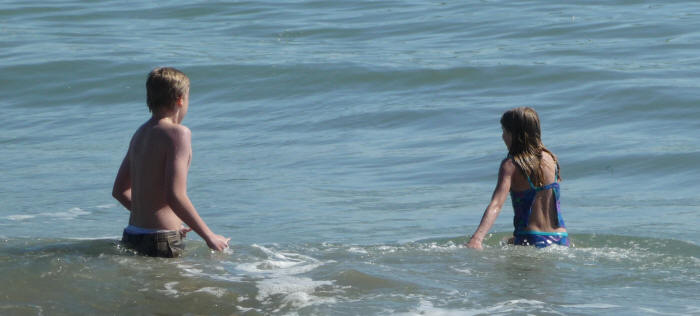


|
Dad and Rebecca |
After leaving Pacific City, OR headed for Seacliff, CA, we stopped along Hwy 101 for a rest and took another ocean picture that I never seem to tire of. |
Rebecca and Mom enjoying their reunion at Seacliff! |
|
|
The wind was blowing some and I took this picture of a rippled dunes. |
|
|
|
|
|
Seacliff Beach |
|
|
|
Rebecca hopped the fence and headed for the water! |
 Kyle and Carly are in that wave somewhere!! |
||
|
|
 That wave got Kyle I think! |
||
|
|
 Testing the waters! |
||
|
Carly watching her dad and brother out in the water. |
 The old "Palo Alto" |
||
 |
|
||
![]() Home
Home
![]() Photo Gallery
Photo Gallery
![]() Las Vegas Photo Gallery
Las Vegas Photo Gallery
![]() Shirley's
Journal
Shirley's
Journal
![]() 2007 Fleetwood Discovery
2007 Fleetwood Discovery
![]()
VISITORS: